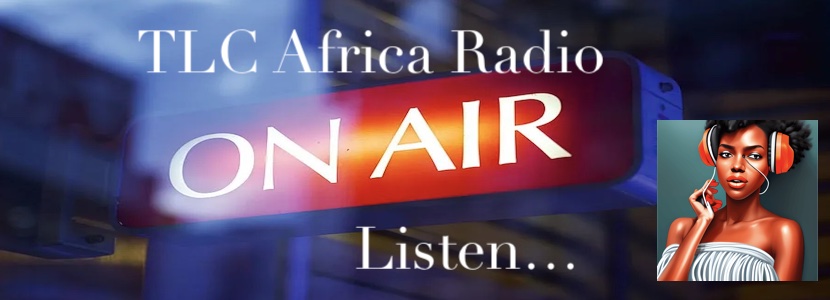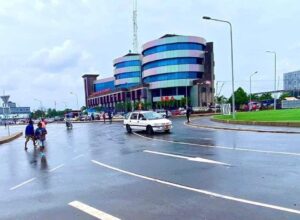
Editor’s note: The views expressed in this article are the author’s own and do not necessarily reflect Daily Observer’s or TLC Africa’s editorial stance.
By S. Karweaye
In October 2023, as they prepared to cast their votes in a landmark presidential election, Liberians found themselves facing a choice between the new rogues and the old rogues: Coalition For Democratic Change (CDC) and the Unity Party (UP): George Weah, the then-incumbent whose administration is corrupt and largely inept; and Joseph Boakai, an erstwhile vice president.
In 2017, the voters decided on Mr. Weah – who had branded himself a “Country Giant” and made no promises to the voters; not even attending any presidential debate– the voters chose him as their next president. After the election, Mr. Boakai willingly conceded his defeat to Mr. Weah, becoming the first sitting vice president in Liberia to do so. This peaceful transfer of power convinced many Liberians that they had made the right choice. For a short while, many Liberians believed that they may not be forced to choose “the lesser of the two evils” in future elections.
However, only six short years later, Liberians are preparing to head to the polls on October 10 and once again found themselves between a rock and a hard place. This time the choices are over 20 presidential, but some individuals and organizations are trying to make the elections between Weah, whose time in power has only served to embellish his unsavory reputation, and Mr. Joseph Boakai, a former vice president who was part of the UP administration which made Liberia the most corrupt country in 2013. A man who headed and presided over the most corrupt senate in Liberia from 2006 to 2017.
If Liberians mean business, they should dump the two parties because of their bad antecedents over the last 18 years. Looking at their inability to change the economic fortunes of Liberia for 18 years now, it is now apparently clear that they would not do anything even if Liberians voted for any of the two parties again. The bad things these parties committed in those past years, Liberia should never give their trust to them again. It is now very clear that these parties will never change, even if they are given another chance. The UP and CDC have formed governments; we were all witnesses. They did not come with good intentions to make amends. If you look at the fight against corruption, all these corrupt people who were supposed to be prosecuted sneaked into the CDC and UP.
How Weah disappointed Liberians
George Weah’s election five years ago as Liberian president was greeted with great enthusiasm and expectation. Many Liberians saw Mr. Weah as a messiah rescuing them from years of economic disempowerment, institutionalized corruption, and insecurity under the Unity Party-led government. However,
Mr. Weah’s term as president started on a low note. He failed to manage the expectations of Liberians who voted for him. Most prominently, two scandals rocked his administration:
Revelations last year that 15.5bn Liberian dollars ($104m, £82m) of freshly minted currency had disappeared from Liberia’s ports.
The mismanagement of a 25m US dollar cash injection into the economy in 2019. Mr. Weah ordered a cash injection of US$25m (£19.6m) into the economy to mop up Liberian dollars and control inflation. In July 2019, Weah said US$8m of it had not been used and he was trying to find out where it had gone. He announced the retirement of the central bank’s governor and the resignation of the governor’s deputy, saying there was “a major lack of systems and controls” at the institution.
As soon as these things started to unravel, the Liberian public was pessimistic about the new president’s potential to fix things and started to protest. The “Save the State” June 2019 nationwide protests brought thousands of Liberians onto the streets of the capital, Monrovia to protest against the corruption and economic decline that many blame on their once hugely popular president, former football star George Weah.
Since Mr. Weah came to power, Liberia’s unemployment rate has increased from 3% in 2017 to 4.1%. According to the International Monetary Fund and the World Economic Outlook April 2023 data, Liberia is the tenth poorest country in the world. An estimated 64 percent of Liberians live below the poverty line, of whom 1.3 million live in extreme poverty
Mr. Weah had promised much but delivered little. The economy is on a cliff, afflicted on all fronts, complete with Liberia’s staple food and fuel shortages. Food is still very expensive. The 2022 Global Hunger Index classifies Liberia’s hunger level as ‘serious’. Liberia ranked 113 of 121 countries on hunger conditions. 38.9% of the population is undernourished and 45% of deaths under the age of five are linked to malnutrition.
The World Bank says Liberia requires between US$350 million and US$600 million annually to fund roads and electricity. Borrowing, which is Mr. Weah’s favored funding source is unwise. According to the IMF 2022 Article IV Consultation and Fourth Review of the Extended Credit Facility Arrangement, total debt service in 2022 amounted to US$151 million which was more than the health sector (US 78.4 million), agriculture sector (US$ 7.3 million ), infrastructure and basic sector ($70.5 million), social development service sector (US 24.3 million), security and rule of law (US$ 102 million), energy, and environmental sector (US$ 35.6 million), transparency and accountability sector (US$ 42.1 million), industry and commerce sector (US$ 9.2 million) and municipal government sector (US$27.2 million).
Analysis of the budget from 2018 to 2023 showed Liberia has spent more than US$327 million on servicing debts. This is to show the harmful effect of debt service. The money that ought to be spent on the development of crucial sectors is spent on servicing debt. A World Bank (WB) study shows that debt begins to hurt an economy, especially economic growth when the debt-GDP ratio exceeds 77%. In pairwise, Liberia’s debt-GDP ratio is moderate at its current rate and far less than the stipulated 77% benchmark. South Africa’s debt to GDP currently stands at 73.2% while Algeria’s 52.2% and Angola’s 63.3% respectively. Egypt, another regional economic power, has also seen its debt-to-GDP ratio move to 92.9% in 2023. Ghana’s debt to GDP has crossed the dreaded 77% to 98.7% in 2022. The country is at high risk of debt distress and has agreed on a debt management strategy with the International Monetary Fund (IMF).
Another indicator of debt sustainability is the Debt-Service Ratio debt. This is the proportion of export earnings that is used to service a debt – that is, to pay back the principal and the interest. A healthy ratio is below 18%. Liberia had a Debt-Service Ratio of 6.4% in 2021. Liberia’s debt-to-GDP ratio is considered low, but the revenue that went into debt servicing is still on the high side. Yet, Mr. Weah is still borrowing.
The country’s inflation was 12% in 2017 but rose to 23.6% in 2018, 27 percent in 2019, and 17% in 2020 followed by a rebound to about 6.9% in 2022. But the IMF projects that growth “should reach 5-6 percent in the medium term if Liberia taps its clear potential through persistent structural reforms and prudent policies.”
Weah’s scorecard in fighting corruption has been bad. He has failed to prosecute high-profile politicians, and civil servants for corruption and secured convictions in a handful of cases. Transparency International’s 2022 Corruption Perception Index (CPI) has ranked Liberia among the poor-performing countries in the fight against corruption. Out of 180 countries captured, Liberia ranked 142. Under Weah, the United States sanctioned three senior Liberian government officials including Weah’s Chief of Staff, Nathaniel McGill; solicitor general and chief prosecutor of Liberian, Sayma Syrenius Cephus, and the managing director of the National Port Authority, Bill Twehway for their involvement in ongoing public corruption in Liberia.
Academically, President Weah’s leadership should be a case study on how not to misplace priority and an excellent opportunity for success in a contentious society. President Weah’s incapacitation to meet people’s expectations is the bane of his administration.
How Joseph Boaka Failed Liberia
Like the worryingly drab and uninspiring Mr.Weah – Mr. Joseph Boakai of the Unity Party is not an engaging and inspiring politician. His public utterances usually offer some interesting propositions, like referring to himself as “A race car parked in the garage” and We squandered opportunities after being Vice President, head, and presiding officer of the Senate for twelve consecutive years raised eyebrows.
His affiliation with notorious ex-warlord and current senator Prince Johnson who was sanctioned by the US government for corruption under the Global Magnitsky Act and selection of Senator Jeremiah Koung as his running mate in the pending 2023 despite the Center for Transparency and Accountability in Liberia (CENTAL) 2021 State of Corruption Report that directly linked Senator Koung and several members of the National Legislature to massive corruption also raises eyebrow.
Ahead of the 2023 presidential elections the former Vice President, Joseph N. Boakai has reinforced his stance on his earlier comment that former President Ellen Johnson Sirleaf squandered a lot of opportunities during the Unity Party’s (UP) twelve years of leadership.
Enough of this! For the records, Mr. Boakai as the vice president of Liberia, had within his powers to do more! The vice president is part of the executive branch. The constitutionally defined role of the Vice President is to serve as President of the Senate as well as Presiding Officer of the Senate. ” Article 51 of the Liberian constitution also says the Vice-President “Shall assist the President in the discharge of his functions. “ According to t to Cornell Law School Legal Information Institute Shall in Law, Shall is an imperative command, usually indicating that certain actions are mandatory, and not permissive.
Let us face this, between 2006—and 2017, while Madam Ellen Johnson Sirleaf was globe-trotted and gallivanted, Boakai was the de facto President He assisted Madam Ellen Johson Sirleaf in her discharge of her functions as per the constitution mandated. Mr. Boakai was the most important liaison between the administration and the Senate and benefited tremendously. All the bogus concession agreements and loan agreements approved through the Liberian Senate were presided over by Mr. Boakai in his capacity as presiding officer and president of the Senate as mandated constitutionally. Did he realize the opportunities were being squandered when these bogus concession and loan agreements were being signed? If Liberia has failed in the past twelve years when the Unity Party was in power, then the Vice President is responsible for this failure as well. As a race car parked in the garage, Mr. Boakai neglected his duties to assist the president in the discharge of her duties as mandated constitutionally. Not only Mrs. Ellen Johnson Sirleaf. Mr. Boakai should explain to Liberians why the Sirleaf/Boakai administration shattered our dreams of a great Liberia.
Truth be told, Mr. Boakai was one of the custodians of the machinery for national development for 12 years, how did he utilize that? How was it channeled? It was under the Unity Party-led government that Liberia was rated the most corrupt country in the world in 2013 by the Transparency International Corruption Perception Index. Where was Mr. Boakai when more than 20 government ministers were accused of corruption by the country’s independent corruption watchdog, the General Auditing Commission, but not one of them was prosecuted during the Unity Party’s first term?
Where was Mr. Boakai when the corruption watchdog Global Witness investigation Hold the Line report found that 20 of the country’s largest logging contracts were entered into illegally (most had been marred by graft)? Where was Mr. Boakai when the succession of scandals rocked the UP-led administration including the one involving Varney Sherman, a lawyer who used to be the ruling Unity Party president’s political party, who went on trial for allegedly paying more than $950,000 in bribes on behalf of her client, the British extractive firm Sable Mining, in order to secure an iron ore concession?
Mr. Boakai’s son Joseph Boakai Jr. was the Principal Director for Corporate Affairs at the Liberia Maritime Authority while Madam Sirleaf appointed three of her sons and one of her sisters to key government posts including the most important of those posts at the National Oil Company of Liberia (NOCAL), which was headed by Ellen Johnson Sirleaf’s son, Robert Sirleaf, until 2013. Robert Sirleaf presided over record exploration deals with the super majors Chevron and ExxonMobil that netted more than $120 million for the Liberian government, but a cloud of suspicion settled over him when NOCAL collapsed in 2015, two years after he had departed. It was Joseph Boakai who presided over those exploration deals in the Senate. Did Mr. Boakai remember then they were squandering opportunities or did he deliberately remain silent waiting for when he becomes the President?
Mr. Boakai headed the senate and presided over its functions which made him the second most influential person in Liberia. He was so powerful as the president of the senate that nineteen Liberian senators supported his 2017 presidential bid. Mr. Boakai also performed supervisory functions over a number of institutions and agencies including the Liberia National Lotteries (LOTTO), the Liberia Marketing Association (LIMA), the Liberia Agency for Community Empowerment (LACE), and the National Commission on Disarmament Demobilization Resettlement and Reintegration (NCDDRR).
Truth be told, Mr. Boakai has failed woefully and today turns around to declare his so-called rescue mission. Rescue mission from what? The damages the UP and CDC incurred on us for eighteen years? If at all Liberian desires to be rescued, you should be the first to be rescued from Prince Johnson and Jeremiah Koung’s entanglement.
Boaka’s health problems also raised some questions about his fitness for office. The only septuagenarian in the race, Mr. Boakai’s impromptu travel in the ECOWAS region on 28 August and his former staunch supporter Henry Costa’s recent revelation on Bokai’s poor health have raised serious concerns about his poor health and fitness to run as President. These concerns could have been excused and forgotten as an extraordinary misfortune, but the 79-year-old continues to be betrayed by his frailty and senility to this day. His apparent tendency to fall asleep during official functions has led to Liberians calling him “Sleepy Joe”.
Mr. Boakai was right when he said the UP-led government “squandered opportunities” because with all the international goodwill pouring into Liberia at the time, the UP-led government didn’t link the 15 counties of the country in terms of good roads, electricity, security of life and property, job creation etc. For eighteen consecutive years, UP and CDC have been in power and championing the reforms of the nation since after the civil war, yet they cry for a change. How long shall they continue to lead us in a forward-backward match? We are tired of failed people! We want change, but certainly not the UP and CDC kind of change
Ready for fresh faces, new ideas
Clearly, neither Weah nor Boakai offers any transformation change for the long-suffering Liberia masses as evidenced by 18 years of stewardship of the Liberians. However, despite the availability of some credible alternatives – including human activist Tiawan Saye Gongloe – the only real contender that has a comprehensive roadmap for tackling corruption and transforming the country.
Liberian voters’ inexplicable reluctance to give a chance to fresh faces and new ideas is the main reason behind this hopeless dilemma; however, less experienced candidates who failed to enter the presidential race in time and convince the masses that they could stand up to seasoned politicians like Weah and Boakai also share some of the blame.
Nevertheless, it is now clear that Liberia’s democracy will be the main loser of 10 October’s presidential election. Whoever wins the race will be scoring a victory not for the Liberian people, but for their army of political and personal hangers-on.
The Liberian people can expect to “win” in a presidential election only if they refuse to choose the old tongues (UP) and the new rogues (CDC) and commence the process of voting for a virile alternative political force.
Source: Daily Observer















